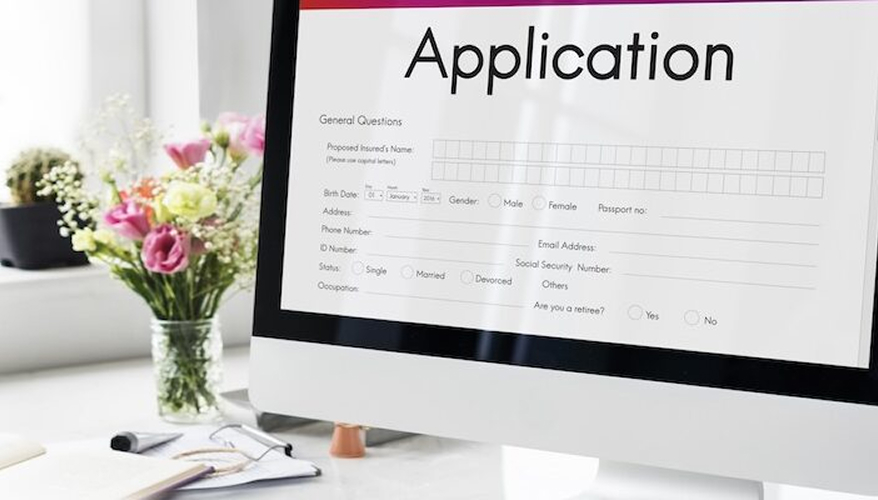Singapore is known for its vibrant economy and cosmopolitan lifestyle, making it a popular destination for expatriates seeking job opportunities. However, before you can work in Singapore, you’ll need a valid work visa.
Two of the most common work visas in Singapore are the Employment Pass (EP) and the S Pass (SP). In this blog, we’ll compare these two work visas to help you determine which one is suitable for your situation.
Work Visa – Employment Pass (EP)
The Employment Pass is designed for foreign professionals, managers, executives, and specialists who wish to work in Singapore. It is typically aimed at individuals who have a job offer from a Singaporean employer and meet certain eligibility criteria. Here are some key features of the Employment Pass:
Eligibility Criteria:
- EP qualifying salary: You must earn at least the EP qualifying salary, which is benchmarked to the top 1/3 of local PMET salaries by age. For new applications and renewals from 1 September 2023, the EP qualifying salary is as follows:
- All sectors except financial services: $5,000 (increases progressively with age from age 23, up to $10,500 at age 45 and above)
- Financial services sector: $5,500 (increases progressively with age from age 23, up to $11,500 at age 45 and above)
- COMPASS: You must pass the points-based Complementarity Assessment Framework (COMPASS) unless you are exempted. COMPASS assesses your skills, experience, qualifications, and salary to determine how well you complement the local workforce.
In addition to the above, you must also meet the following general requirements:
- You must have a valid passport.
- You must be in good health.
- You must have a clean criminal record.
If you are applying for an EP for the first time, you must also have a job offer from a Singapore-registered company.
Note: The EP eligibility criteria may change from time to time. Please refer to the Ministry of Manpower (MOM) website for the latest information.
Validity and Renewal:
The validity of an EP in Singapore is typically 2-3 years. However, it can be renewed for an additional 2-3 years, depending on your job performance and the needs of your employer. Renewal is contingent upon continued employment with the same employer, and salary requirements must still be met.
You can apply to renew your EP up to 6 months before it expires. Your employer or appointed employment agent (EA) can submit the renewal application on your behalf.
The following documents are required for EP renewal:
- Your passport.
- Your EP card.
- A copy of your most recent payslips.
- A letter from your employer stating that your employment is still ongoing and that you are meeting the EP requirements.
The processing time for EP renewal applications is typically 10 business days. However, it may take longer if additional information is required.
If your EP renewal is successful, you will receive an In-Principle Approval (IPA) letter. The IPA letter is valid for 3 months. You must follow the instructions in the IPA letter to get your EP renewed.
Note: Experienced tech professionals with skills in shortage may apply for a longer 5-year duration EP.
There is no limit on the number of times an EP can be renewed. However, MOM may review your EP eligibility each time you apply for renewal.
Family Privileges:
As an Employment Pass (EP) holder in Singapore, you can bring certain family members to join you in the country. The following family members are eligible for passes:
- Legally married spouse: Your spouse can apply for a Dependant’s Pass (DP).
- Unmarried children under 21 years old: Your children can apply for a DP.
- Common-law spouse: Your common-law spouse can apply for a Long-Term Visit Pass (LTVP).
Eligibility Requirements
To be eligible to bring your family on a DP or LTVP, you must meet the following requirements:
- You must hold an EP and earn a minimum fixed monthly salary of $6,000.
- You must be sponsored by an established, Singapore-registered company (usually your employer).
The processing time for family pass applications is typically 2-3 weeks. However, it may take longer if additional information is required.
Work Visa – S Pass (SP)
The S Pass is designed for mid-skilled foreign workers who are employed in various sectors such as construction, manufacturing, services, and others. It’s a suitable option for individuals who may not meet the higher qualifications and salary requirements of the Employment Pass. Here are some key features of the S Pass:
Eligibility Criteria:
- Salary: You must earn a fixed monthly salary comparable to the top one-third of the local Associate Professionals and Technicians (APT) workforce by age. For new applications and renewals from 1 September 2023, the minimum salary requirement is $3,150.
- Skills and experience: You must have the skills and experience required for the job you are applying for. You may be required to pass a skills assessment test.
- Job offer: You must have a job offer from a Singapore-registered company.
- General requirements: You must have a valid passport, be in good health, and have a clean criminal record.
Validity and Renewal:
The validity of an S Pass in Singapore is typically 2 years. However, it can be renewed for an additional 2 years, depending on your job performance and the needs of your employer.
You can apply to renew your S Pass up to 6 months before it expires. Your employer or appointed employment agent (EA) can submit the renewal application on your behalf.
The following documents are required for S Pass renewal:
- Your passport.
- Your S Pass card.
- A copy of your most recent payslips.
- A letter from your employer stating that your employment is still ongoing and that you are meeting the S Pass requirements.
The processing time for S Pass renewal applications is typically 10 business days. However, it may take longer if additional information is required.
If your S Pass renewal is successful, you will receive an In-Principle Approval (IPA) letter. The IPA letter is valid for 3 months. You must follow the instructions in the IPA letter to get your S Pass renewed.
There is no limit on the number of times an S Pass can be renewed. However, MOM may review your S Pass eligibility each time you apply for renewal.
Family Privileges:
As an S Pass holder in Singapore, you have the opportunity to bring specific family members to accompany you in the country. The following family members are qualified to apply for passes:
- Legally married spouse: Your spouse can apply for a Dependant’s Pass (DP).
- Unmarried children under 21 years old: Your children can apply for a DP.
- Parents: Your parents can apply for a Long-Term Visit Pass (LTVP).
Eligibility Requirements
To be eligible for a DP or LTVP, your family members must meet the following requirements:
- You must hold an S Pass and earn a minimum fixed monthly salary of $3,150.
- You must be sponsored by an established, Singapore-registered company (usually your employer).
The processing time for family pass applications is typically 2-3 weeks. However, it may take longer if additional information is required.
Choosing Between EP and S Pass
Now that you have an overview of both the Employment Pass and the S Pass, you might wonder which work visa is suitable for you. When choosing between an Employment Pass (EP) and an S Pass, there are a number of factors to consider, including:
- Salary: EP holders must earn a higher salary than S Pass holders.
- Skills and experience: EP holders must have a higher level of skills and experience than S Pass holders.
- Job offer: EP holders must have a job offer from a Singapore-registered company that is in a designated sector.
- Quota: There is no quota on the number of EPs that can be issued each year. However, there is a quota on the number of S Pass holders that can be issued each year.
- Family privileges: EP holders may be able to bring their family members to Singapore on Dependant’s Passes. S Pass holders may also be able to bring their family members to Singapore, but the requirements are more stringent.
Here is a table that summarizes the key differences between EPs and S passes:
| Feature | Employment Pass (EP) | S Pass |
|---|---|---|
| Salary requirement | $5,000 (or higher) | $3,150 |
| Skills and experience requirements | High | Medium |
| Job offer requirement | Must be from a Singapore-registered company in a designated sector | Must be from a Singapore-registered company |
| Quota | No quota | Quota applies |
| Family privileges | Dependant’s Pass may be available | Dependant’s Pass may be available, but requirements are more stringent |
If you are a highly skilled professional with a high salary and a job offer from a Singapore-registered company in a designated sector, then you should apply for an EP. EP holders enjoy more benefits than S Pass holders, such as no quota restrictions and the ability to bring their family members to Singapore on Dependant’s Passes.
If you are a skilled professional with a medium salary and a job offer from a Singapore-registered company, then you should apply for an S Pass. S Pass holders may not enjoy all of the benefits of EP holders, but they can still work and live in Singapore.
The best way to choose a work visa for yourself is to discuss your individual circumstances with your employer or a qualified immigration advisor.
Conclusion
Choosing between the Employment Pass and the S Pass in Singapore depends on your qualifications, salary, job role, and long-term plans. Carefully assess your situation and consult with your prospective employer and legal experts if needed to determine the most suitable work visa for you. Ultimately, both visas offer valuable opportunities to work and live in Singapore, contributing to the vibrant and diverse workforce of this dynamic city-state.
Regardless of the type of work visa you hold in Singapore, you have an equal opportunity to apply for Singapore Permanent Residency (PR), provided you meet all the other eligibility criteria. For an assessment of your PR prospects, it is advisable to consult with a reputable immigration consultant.






